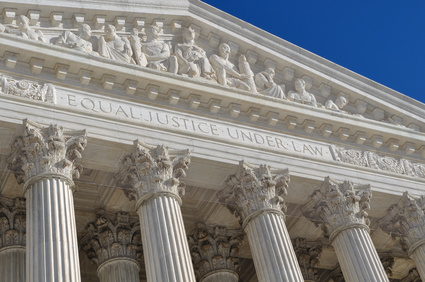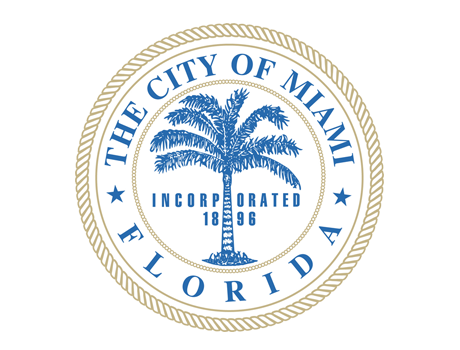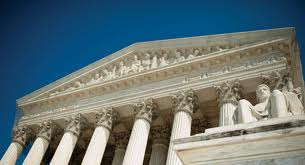In an action by Cook County, Illinois against various lenders for alleged increased expenses supposedly arising from heightened default rates, in which the County asserted that the lenders engaged in an “integrated equity-stripping scheme," the U.S. Court of Appeals for the Seventh Circuit recently affirmed a summary judgment ruling in favor of the defendant banks.
Posts published in “Fair Housing Act”
The U.S. Court of Appeals for the Ninth Circuit, en banc, recently affirmed in part and reversed in part a trial court’s partial grant and partial denial of a bank’s motion to dismiss the City of Oakland’s claims under the federal Fair Housing Act.
The U.S. Court of Appeals for the Ninth Circuit recently held that the city of Oakland’s amended complaint alleging unlawful discriminatory lending practices against a national bank and its parent holding company sufficiently stated a claim that its decreased property tax revenues, but not its increased municipal expenses, were proximately caused by the alleged predatory lending practices.
Following the ruling by the Supreme Court of the United States in Bank of America Corp. v. City of Miami, 137 S. Ct. 1296 (2017), one of the primary and developing issues in FHA disparate impact litigation is proximate cause. The issue of whether an alleged violation of the Fair Housing Act proximately caused any cognizable injury is currently being contested in multiple jurisdictions, and may likely develop in a fractured manner perhaps leading ultimately to another eventual determination by the Supreme Court. Background Briefly, the City of Miami ruling follows the groundwork set forth in Texas Dept. of Housing and Comty. Affairs…
The U.S. Court of Appeals for the Ninth Circuit recently affirmed a trial court’s summary judgment ruling in favor of a bank and against the City of Los Angeles on the City’s claims that the bank violated section 3605(a) of the federal Fair Housing Act (FHA) through alleged discriminatory lending practices, and that the bank was unjustly enriched. A copy of the opinion in City of Los Angeles v. Wells Fargo & Co. is available at: Link to Opinion. As you may recall, section 3605(a) of the FHA makes it unlawful for financial institutions “to discriminate against any person in…
The Supreme Court of the United States recently held that a city qualifies as an “aggrieved person” under the federal Fair Housing Act, 42 U.S.C. § 3601 et seq., and thus that the plaintiff city in this action had standing to assert claims under the FHA against banks the city believed were engaging in unlawful discriminatory lending practices. According to the city, the unlawful lending practices caused, among other damages, a disproportionate number of foreclosures and vacancies in majority-minority neighborhoods, which impaired the city’s effort to assure racial integration, diminished the city’s property-tax revenue, and increased demand for police, fire,…
The U.S. Court of Appeals for Eleventh Circuit recently held that a municipality has standing to bring disparate impact discrimination claims under the federal Fair Housing Act to recover for allegedly increased police, fire and other costs supposedly caused by the defendant banks’ so-called “predatory lending” practices. A copy of the opinion is available at: Link to Opinion. The City brought three separate cases against three different banks, alleging that they violated the Fair Housing Act, 42 U.S.C. § 3601 et seq. (FHA), by supposedly targeting Black and Latino customers for so-called “predatory” loans that were allegedly riskier and had…
A large mortgage lender recently prevailed against both the City of Los Angeles and the County of Cook, Illinois, in lawsuits alleging “disparate impact” discrimination in violation of Title VIII of the Civil Rights Act of 1968, 42 U.S.C. § 3601 et seq., more commonly known as the federal Fair Housing Act (FHA). As you may recall, the City of Los Angeles alleged that Wells Fargo & Co. and Wells Fargo Bank, N.A. “engaged in a continuous pattern and practice of mortgage discrimination in Los Angeles since at least 2004 by imposing different terms or conditions on a discriminatory and…
In a 5-4 decision yesterday, the U.S. Supreme Court held that disparate impact claims are cognizable under the federal Fair Housing Act (FHA), but put in place various limits and safeguards. A copy of the opinion is available at: Link to Opinion. The underlying lawsuit involved a dispute between a Texas-based nonprofit that assists low-income families with finding affordable housing and a Texas state department that distributes tax credits to developers. The nonprofit sued the department under a disparate impact theory, claiming that the department violated the FHA because it had allocated too many tax credits to housing in predominantly minority inner-city…









